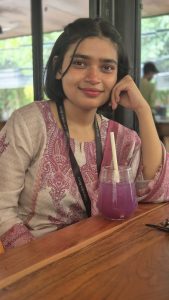
Monalisa completed her B.Tech. in Electronics and Communication Engineering from Future Institute of Engineering and Management, West Bengal, in 2022. The same year, she joined IISc to pursue M.Tech. in Signal Processing. During her M.Tech., she was awarded the Wells Fargo Women’s Fellowship. She is currently working at Mercedes-Benz.
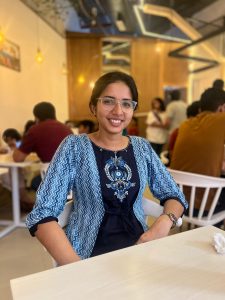
Gayathri Venkat completed her MTech in Signal Processing in 2024 and received the Axis Bank MTech Fellowship for the academic year 2023-24. She is currently employed at MathWorks and has a keen interest in Image Processing and Deep Learning.
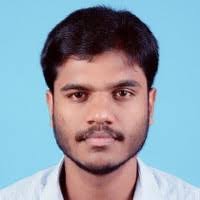 Anand Jerry George obtained All India Rank – 2 in GATE-EC (2019). Prior to joining M.Tech.(SP) at IISc, he worked as analog characterization engineer at Texas Instruments (2015-2019), for which he was awarded multiple US patents. Anand received the highest CGPA (9.9/10) and will soon be receiving Prof. I. S. N. Murthy medal for his stellar achievement. He is presently working for Taiwan Semiconductor Manufacturing Company (TSMC).
Anand Jerry George obtained All India Rank – 2 in GATE-EC (2019). Prior to joining M.Tech.(SP) at IISc, he worked as analog characterization engineer at Texas Instruments (2015-2019), for which he was awarded multiple US patents. Anand received the highest CGPA (9.9/10) and will soon be receiving Prof. I. S. N. Murthy medal for his stellar achievement. He is presently working for Taiwan Semiconductor Manufacturing Company (TSMC).
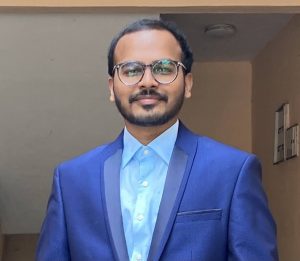
Nareddy Kartheek Kumar Reddy joined the MTech SP program in 2018. Prior to that, he worked as a Senior Engineer at Honeywell. Kartheek graduated from the Indian Institute of Technology, Kharagpur majoring in Electronics and Electrical Communication Engineering in 2016. He upgraded his master’s to PhD and received the prestigious Prime Ministers Research Fellowship. In 2020, he won the Qualcomm innovation fellowship. He is currently working with Prof. Chandra Sekhar Seelamantula.
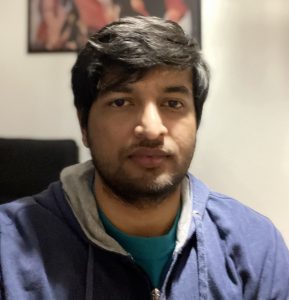 Vinith joined M.Tech Signal Processing in the year 2017. He graduated with a B.Tech from NITK, Surathkal in 2016 and worked for a year in Philips Healthcare. After graduating from IISc he worked for a year in Samsung Bangalore and he is currently pursuing his Ph.D. in data analytics at the University of Basel. He was a recipient of the Prof. I.S.N. Murthy Medal for the outstanding SP student in 2019.
Vinith joined M.Tech Signal Processing in the year 2017. He graduated with a B.Tech from NITK, Surathkal in 2016 and worked for a year in Philips Healthcare. After graduating from IISc he worked for a year in Samsung Bangalore and he is currently pursuing his Ph.D. in data analytics at the University of Basel. He was a recipient of the Prof. I.S.N. Murthy Medal for the outstanding SP student in 2019.
Vinith shared the following testimonial:
The master’s in Signal Processing from IIsc gave me the first principles view of solving problems. The courses, peers, professors, and the program gives you an indispensable experience unique to IIsc. The rigorous courses in Matrix theory, probability, and optimization gave me the tools to understand and effectively model real-world problems I am interested in. The practical courses with their exhaustive assignments and exams might be tiring at first, but certainly gives you a taste of the practical problems you might face later when you progress in the field. The course content has a wide breadth as well, covering topics from DSP hardware processes, fundamental signal processing and communications theory, and practical machine learning.
The environment in IISc is very distinctive as well, interacting with a large number of researchers from your peers, Ph.D. students, or professors, you get to look at the edges of the signal processing research.
I am very excited to see that the curriculum is restructured to have a good blend of fundamental courses and specialization modules to go further with what one’s interested in to have a much more focused training.
 Manoj Ramanathi was a member of the 2017-2019 M.Tech SP program. He received his Bachelor’s degree in Electrical Engineering from the Indian Institute of Technology, Bombay. During his M.Tech, he co-authored multiple research papers with his guide, Prof. Prasanta Kumar Ghosh, which were published at top International conferences. Currently, he works for Samsung R&D, Bangalore as a Lead Engineer.
Manoj Ramanathi was a member of the 2017-2019 M.Tech SP program. He received his Bachelor’s degree in Electrical Engineering from the Indian Institute of Technology, Bombay. During his M.Tech, he co-authored multiple research papers with his guide, Prof. Prasanta Kumar Ghosh, which were published at top International conferences. Currently, he works for Samsung R&D, Bangalore as a Lead Engineer.
Manoj shared the following testimonial:
“As you all know, IISc is world-famous for its research. Through the comprehensive course work and the rigorous project work, the revamped M.Tech SP program provides an excellent platform for you to master the areas of Signal processing/Communication/Power systems. The unique module selection process helps you explore specific areas like Speech and Language, Image and Video, Data science. The mathematically rigorous foundational courses set solid foundations for the latter specialization courses and the project work. The advanced courses will teach you state-of-the-art techniques and will be crucial for the project work. In the form of the elective courses, you can learn something of your interest from the other departments like Data structures and algorithms from CSA, Digital system design with FPGA from DESE, Ordinary Differential Equations from Mathematics. Through the project work, you’ll be able to gain a deep knowledge of the specific domain by reading research papers and interacting with your labmates. By the end of the project work, you’ll be able to push horizons in your areas by publishing research papers at top tier international conferences. All in all, this program gives you a superb platform to acquire all the necessary skills that you need to pursue a PhD or to join a research role at a top company.”
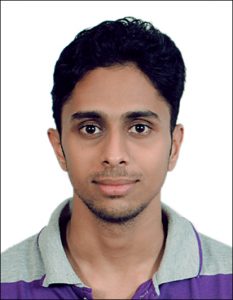
Hisham Rahman joined the Mtech Signal Processing program in 2015. Prior to that he worked for two years as a System Engineer in Nvidia Graphics Pvt. Ltd. Hisham graduated from Model Engineering College, Kerala majoring in Electronics and Communication Engineering in 2013. He was awarded Prof. I. S. N. Murthy Medal for securing the highest CGPA in Signal Processing program. He is currently employed as Sr. Staff Research Engineer for Netradyne Technology Pvt. Ltd., working in road safety domain using AI and Computer Vision.
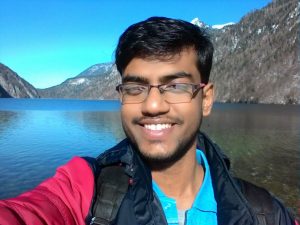 Suprosanna was one of the M.Tech.(SP) toppers of his batch. A star student from Jadavpur University, he joined the M.Tech.(SP) program during 2014-2016. He excelled in the coursework at IISc and did an outstanding project. He is presently pursuing PhD degree in Medical Image Analysis at Technical University in Munich (TUM), Germany.
Suprosanna was one of the M.Tech.(SP) toppers of his batch. A star student from Jadavpur University, he joined the M.Tech.(SP) program during 2014-2016. He excelled in the coursework at IISc and did an outstanding project. He is presently pursuing PhD degree in Medical Image Analysis at Technical University in Munich (TUM), Germany.
Suprosanna’s current webpage: http://campar.in.tum.de/Main/SuprosannaShit
Suprosanna shared the following testimonial:
“Back in the day, when I got admission to the M.E. Signal Processing, IISc was one of the very few institutes offering such specialized and niche programs. However, in hindsight, I regard signal processing as one of the foundational programs. One may ask, why? Think of ‘convolution,’ a fundamental building block of deep learning, which is a core signal processing idea. While emphasizing such basic concepts, the master’s program on Signal Processing at IISc gradually exposed me to highly interdisciplinary and advanced areas. Whether regular assignments or open-book exams, or final year projects, every part of the curriculum was thought-provoking, thanks to the great teachers and mentors, I happened to have. During that time, the subject knowledge I learned became indispensable at various stages of my Ph.D. project. Looking at the current curriculum, I am even more delighted to see advanced machine learning topics across vision, image, speech, and communication courses. I wish I could go back to the classroom once more and learn about Fourier transform again.”
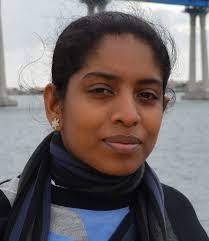 Geethu Joseph received the B. Tech. degree in electronics and communication engineering from the National Institute of Technology, Calicut, India, in 2011, and the M. E. degree in signal processing and the Ph.D. degree in electrical communication engineering (ECE) from the Indian Institute of Science (IISc), Bangalore, in 2014 and 2019, respectively. She was a postdoctoral fellow with the department of electrical engineering and computer science, Syracuse University, NY, USA, from 2019 to 2021. She is currently an assistant professor in the circuits and systems group at the Delft University of Technology, Delft, Netherlands.
Geethu Joseph received the B. Tech. degree in electronics and communication engineering from the National Institute of Technology, Calicut, India, in 2011, and the M. E. degree in signal processing and the Ph.D. degree in electrical communication engineering (ECE) from the Indian Institute of Science (IISc), Bangalore, in 2014 and 2019, respectively. She was a postdoctoral fellow with the department of electrical engineering and computer science, Syracuse University, NY, USA, from 2019 to 2021. She is currently an assistant professor in the circuits and systems group at the Delft University of Technology, Delft, Netherlands.
Dr. Joseph was awarded the Prof. I. S. N. Murthy Medal in 2014 for being the best M. E. (signal processing) student with the ECE dept., IISc, the 2020 SPCOM Best Doctoral Dissertation Award, and the Seshagiri Kaikini Medal for the best Ph.D. thesis of the ECE dept., at IISc for the year 2019-’20.
Dr. Joseph holds 20+ peer-reviewed publications in the fields of signal processing, communications, and control theory. She is a member of IEEE signal processing and a reviewer for various related publications. Her research interests include statistical signal processing, network control, and machine learning.
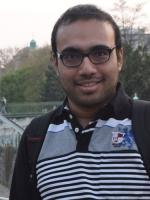 Subhadip graduated in 2012 with an outstanding performance, which also won him the Prof. I. S. N. Murthy Medal, awarded to the top performer of the SP program every year. He went on to do a PhD with Prof. Chandra Sekhar Seelamantula. His PhD thesis won him the SPCOM 2020 Doctoral Dissertation Award (Honorable mention). He is presently a postdoctoral fellow at Cambridge Image Analysis group, University of Cambridge.
Subhadip graduated in 2012 with an outstanding performance, which also won him the Prof. I. S. N. Murthy Medal, awarded to the top performer of the SP program every year. He went on to do a PhD with Prof. Chandra Sekhar Seelamantula. His PhD thesis won him the SPCOM 2020 Doctoral Dissertation Award (Honorable mention). He is presently a postdoctoral fellow at Cambridge Image Analysis group, University of Cambridge.
Website link: http://www.damtp.cam.ac.uk/research/cia/person/sm2467
Subhadip shared the following testimonial:
“Through Masters in SP, I received rigorous training in some of the essential mathematical subjects (such as matrix theory, probability and statistics, and optimization) that underlie the advances in machine learning and modern data science. Besides, the course had a strong emphasis on hands-on implementations of major concepts, often through coding assignments and mini projects. It offered me the opportunity to attend the lectures of some of the leading experts in signal processing, machine learning, imaging, and communications theory, which prepared me for conducting research at the cutting-edge of imaging inverse problems.
I am very excited to see the thoroughly restructured MTech (SP) program, which offers a perfect blend of theoretical and applied courses to the students from a wide range of disciplines that are in high demand both in the industry and academia.”
Deepu Vijayasenan obtained his MTech(SP) in 2003 and subsequently pursued a PhD at Ecole polytechnique federale de Lausanne (EPFL), Switzerland. He is presently an Associate Professor at Department of Electronics and Communication Engineering, National Institute of Technology Karnataka (Surathkal). His interests are in Speech Signal Processing and Machine Learning.Deepu Vijayasenan video1 Deepu Vijayasenan video2